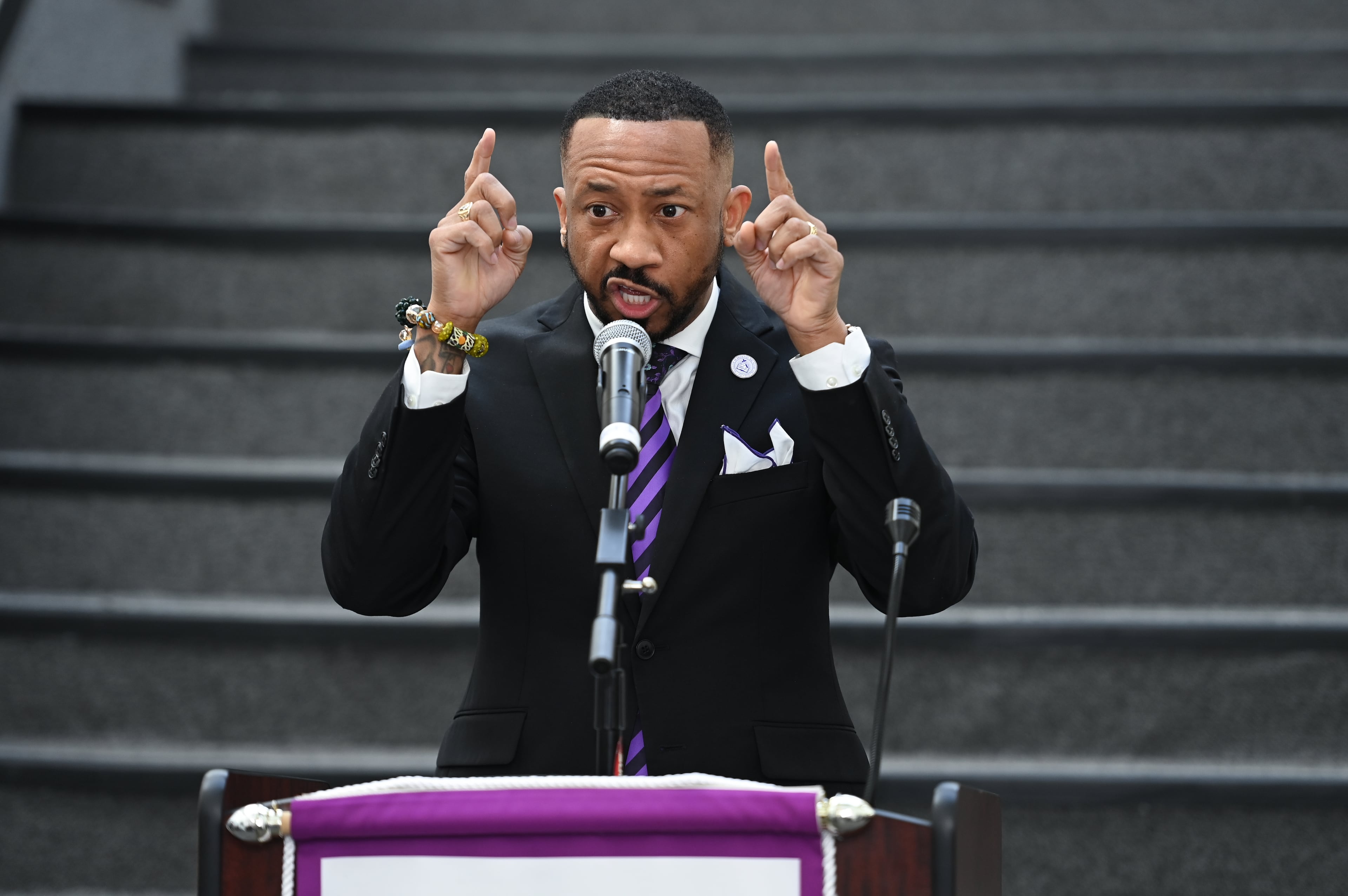Atlanta HBCUs win millions from White House — but it could be at others’ expense

Georgia’s historically Black colleges and universities are about to receive a sizable one-time investment from the federal government.
After the U.S. Department of Education last week said it would cut funding to “racially discriminatory” grant programs at minority-serving institutions, on Monday the department announced some of those funds would be redirected to HBCUs across the country.
In total, HBCUs nationally will get $438 million, according to the UNCF, previously known as the United Negro College Fund. The organization said it worked with President Donald Trump’s administration to help secure the funding.
There are over 100 HBCUs in the U.S. It is not yet clear how the money will be divvied up between them and how much will go to the 10 in Georgia. But the unexpected revenue will likely be welcomed by the schools that have long requested more federal resources.
George T. French Jr., president of Clark Atlanta University, Georgia’s largest, private HBCU, said the influx of money could go to areas like academic support services, campus infrastructure improvements, scholarships for low-income students, and endowment investments for long-term sustainability.

“The University is grateful to the Executive Branch and the Secretary of Education for this reported appropriation,” French said in an emailed statement to The Atlanta Journal-Constitution. “As we develop the workforce to support our nation as Higher Education exemplar, we remain appreciative of bipartisan support for Higher Education within this sacred sector.”
The surge in funds comes partly at the expense of minority-serving institutions. Last week, the department announced it would stop funding some MSI grant programs that it considers discriminatory because eligibility requires that schools enroll a certain percentage of racial minorities. Those cuts total $350 million, The New York Times reported Monday.
HBCUs need stronger federal and state support, said Sara Partridge, associate director of higher education policy at the Center for American Progress, a left-leaning think tank. “However, this funding shouldn’t come at the expense of funds intended for other minority-serving institutions and programs that support underrepresented students,” Partridge said in an emailed statement.
Georgia has a number of schools that qualify as MSIs. For instance, Georgia State University qualifies as a predominantly Black institution (PBI), as do many of the state’s technical colleges. Georgia State and the Technical College System of Georgia did not immediately respond to a request for comment on if they would be affected by the funding cut.
The UNCF’s Lodriguez Murray said he was pleased with the additional resources, noting HBCUs have been underfunded since their inception.
“For a long time, they have punched above their weight in terms of what they have produced for this country and the types of graduates that have come out of these institutions, and the type of economic improvement that they’ve made in the areas where they are located, in the Black community, and creating the Black middle class,”Murray said.
Despite representing just 3% of colleges and universities nationally, HBCUs educate approximately 10% of all Black students in the U.S., awarding 17% of all bachelor’s degrees and 25% of all STEM bachelor’s degrees earned by Black students, according to the UNCF. HBCUs enroll a larger percentage of students who rely on loans to fund their education.
Murray said Trump has been a supporter of HBCUs since his first term, noting that Trump forgave disaster loans for four HBCUs in 2018. And he pointed to the April executive order in which Trump called for increasing “the capacity of HBCUs to provide the highest-quality education to an increasing number of students.”
“So this is a track record. This is not just a snapshot,” Murray said of Monday’s HBCU funding announcement.

Coupled with money that had already been slated for HBCUs, the additional allocation will bring federal HBCU funding to a total of more than $1.34 billion in fiscal year 2025.
The money could help compensate for federal grants that HBCUs lost earlier this year. As the Trump administration targeted diversity, equity and inclusion efforts at universities nationwide, Georgia HBCUs saw millions of expected federal dollars evaporate, according to data from Grant Witness.
Spelman College, for instance, lost multiple grants, including a multimillion-dollar award for a program designed to help increase the number of Black women scientists. Other private schools like Morehouse College, Morehouse School of Medicine and Clark Atlanta suffered similar blows, according to the database. Albany State University, a public institution, had at least two grants terminated.



